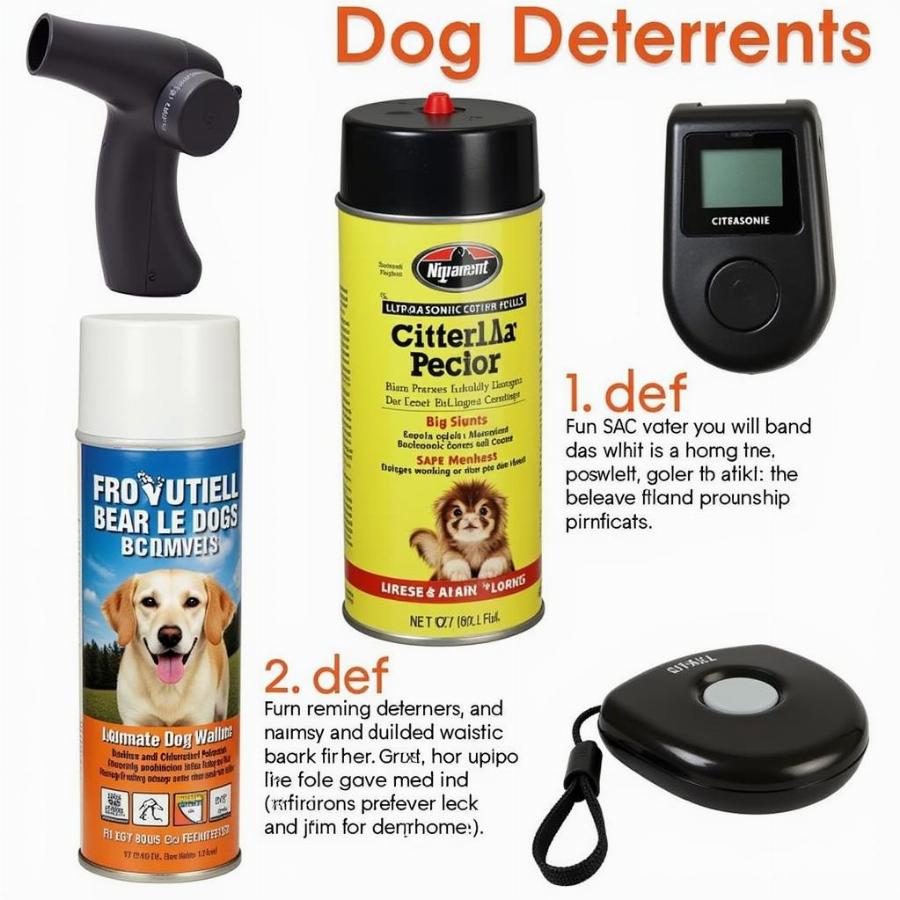Mace and other pepper sprays are often touted as self-defense tools for humans, but their use around dogs raises serious concerns. While you might consider carrying mace for protection during walks, it’s crucial to understand the potential risks and responsible ways to handle such situations involving your furry friend.
Understanding the Dangers of Mace
Mace, also known as pepper spray, works by irritating the eyes, nose, and respiratory tract, causing burning, pain, and difficulty breathing. While these effects are usually temporary in humans, dogs experience them more severely due to their sensitive sense of smell and faster respiratory rates.
Why Mace Can Be Harmful to Dogs
- Heightened Sensitivity: Dogs have a much stronger sense of smell than humans, making them incredibly susceptible to the irritants in mace. Even small exposures can lead to significant discomfort and respiratory distress.
- Risk of Accidental Spraying: Dogs are naturally curious and may run towards a perceived threat or loud noise. This inquisitive nature puts them at risk of being accidentally sprayed during an altercation.
- Potential for Long-Term Effects: While mace’s effects are generally temporary, some dogs may experience prolonged respiratory issues, eye damage, or allergic reactions requiring veterinary attention.
Alternatives to Mace for Dog Owners
The good news is that there are safer and more effective ways to protect yourself and your dog during walks without resorting to mace:
1. Prioritize Prevention and Awareness:
- Choose well-lit, populated walking routes: Opt for areas with good visibility and foot traffic, making it less appealing for potential threats to approach.
- Walk with a buddy or group: There’s safety in numbers. Walking with others can deter potential attackers.
- Project confidence and awareness: Pay attention to your surroundings and make eye contact with those you pass, conveying alertness.
2. Consider Dog-Friendly Deterrents:
- Ultrasonic whistles: These devices emit a high-pitched sound that can startle and deter aggressive animals without harming them.
- Citronella spray: Unlike mace, citronella spray utilizes a strong, unpleasant scent that can deter dogs and other animals without causing them pain.
- Personal alarms: A loud, piercing alarm can disorient attackers and attract attention from others who can assist you.
 Dog Deterrent Products
Dog Deterrent Products
What to Do if Your Dog is Sprayed with Mace
Despite your best efforts, accidents can happen. If your dog is sprayed with mace:
- Remove your dog from the area immediately: Get to a safe location away from the source of the irritant.
- Flush their eyes and nose with cool water: Use a gentle stream of water to rinse away the irritant.
- Contact your veterinarian: Describe the situation and follow their guidance. They may recommend bringing your dog in for an examination.
Keeping Your Furry Friend Safe
Protecting yourself and your dog should never come at the cost of their well-being. By understanding the dangers of mace and exploring safer alternatives, you can enjoy peaceful and worry-free walks with your canine companion. Remember, a well-prepared and informed owner is a dog’s best defense.
FAQs About Mace and Dogs
Can I use dog mace on other animals?
Dog mace, containing pepper spray, should never be used on any animal. It can cause significant pain and distress.
What are the signs of mace poisoning in dogs?
Signs of mace poisoning in dogs include excessive pawing at the face, coughing, wheezing, drooling, red and watery eyes, and difficulty breathing.
Is it legal to use mace on an attacking dog?
Laws regarding using mace on animals vary by location. It’s essential to familiarize yourself with your local regulations.
Are there any home remedies for mace exposure in dogs?
While flushing the affected areas with water can help, it’s crucial to seek veterinary attention immediately if your dog has been sprayed with mace.
Can mace permanently damage a dog’s sense of smell?
In some cases, prolonged or severe exposure to mace can lead to lasting damage to a dog’s sensitive olfactory system.
For more information on dog safety and health, browse our other helpful articles:
- tularemia in dogs
- mites on a dog
- dog mace spray
- flea control for small dogs
- good home remedy for fleas on dogs
Need expert advice on dog care? Contact Beaut Dogs at [email protected] for reliable answers to all your dog-related questions. Beaut Dogs is your trusted source for comprehensive and compassionate information on everything dog-related. Visit us today to learn more!